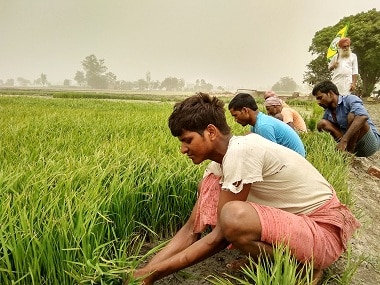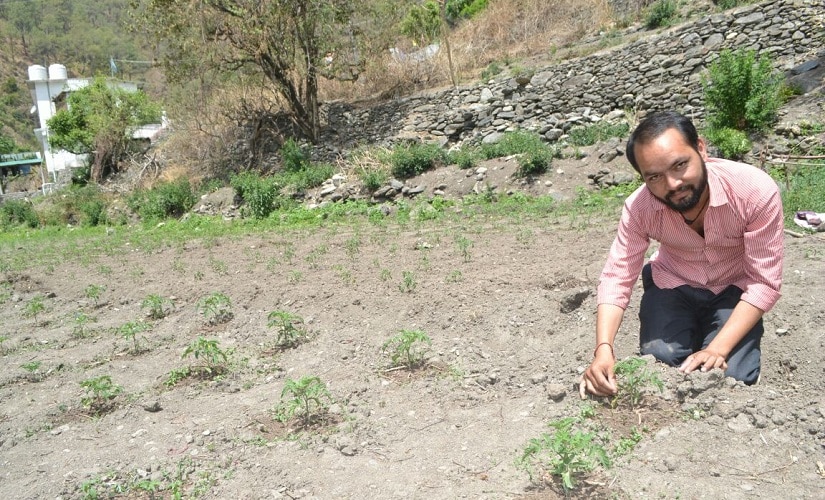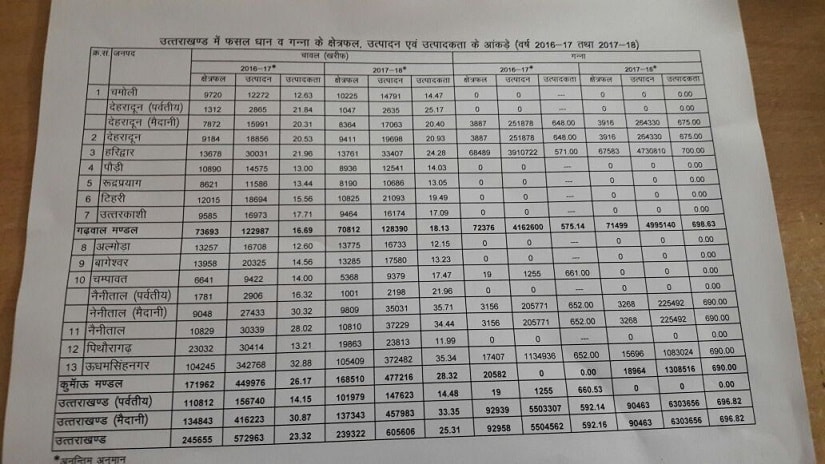A major rice importer in China has signed a Memorandum of Understanding (MoU) with Thailand to buy at least 10,000 tonnes of Kor Khor 43 rice. Thai Deputy Commerce Minister Chutima Bunyapraphasara and Director-General of Department of International Trade Promotion Chantira Jimreivat Vivatrat witnessed the signing ceremony between a Thai rice producer and the Chinese importer. Under the agreement, a minimum of 10,000 tonnes of Thai Kor Khor 43 rice will be sold in China via both traditional and online platforms. The rice will be sold to the Chinese company at 12,000 THB per tonne. It is expected that up to 13,000 tonnes of Kor Khor 43 rice will have been harvested by the end of next month. The rice has a low sugar content compared to other rice strains and produces a pleasant scent when cooked. In addition, Chantira says that Thai fresh and processed fruits have grown in popularity among Chinese consumers over the past three months thanks to cooperation between the Thai government and the Alibaba Group. Regarding export growth in the second half of this year, Chantira said the trend would likely be positive given the recovery of the global economy. Despite a positive outlook, she will meet with members of the private sector in August to discuss whether trade barriers imposed by other nations will have any significant impact on the export sector.
Dehradun: The state of Uttarakhand, famous for its temples, lush green natural beauty, and the prized Dehradun basmati rice, is in danger of losing the last due to water scarcity in the state. Known for its aroma and length of grains, this variety of rice is grown in Dehradun, Nainital, Pithoragarh, Bhimtal and other parts of the state and is famous all across the world.
 Lokesh Kumar Verma, a farmer in Nainital district, says that to people in the state, Dehradun basmati is more than just a crop — it is a part of the state's heritage. But now, farmers are shifting away from its cultivation due to unavailability of water to irrigate the fields. "We have stopped growing this rice because it was unable to retain the original aroma due to water scarcity. This rice variety requires more water than any other variety and without the aroma, it is just normal rice, not basmati," says Verma. He says farmers in most of the areas that grew basmati rice have switched to other high-yielding varieties in a bid to cut their losses. A major advantage of these new varieties is that they need less water. "These hybrid seeds lack the aroma of basmati rice but people are growing it because they do not want to bear losses by growing Dehradun basmati. There is no water in the springs, even the river gets dried up when we require water, so there is no profit in growing Dehradun basmati," says Verma, who has switched to cultivating red and black rice instead of the traditional Dehradun rice. 'Losing our identity' "When you see the fertile piece of land where you used to grow basmati turn barren, you feel sad and helpless," says Prem Ramola, 56, a resident of Kairvan village near Rajpur, Dehradun. He believes that for rice farmers in Uttarakhand, the worst is yet to come. "It will be more difficult for rice farmers in the future. There is no water. Farmlands are turning barren. In the old days, there was a lot of water in the Rispana river, but for the last few years, the river water has been taken over by the Jal Nigam. As a result, we farmers are purely dependent on rainwater. If God is kind and there is a lot of rain, we are safe," says Ramola.
"The problem is not a new one. We are facing it for many years. As you know, rice cultivation requires large quantities of water. The more the water, the better the results. This is the reason the quality of our basmati rice has gone down. Our family is into rice farming for the last 80-85 years. We have around 32 bighas of land and the entire plot was used for cultivating rice. Our village, our state, was known for its basmati rice and we are losing our identity," he says. SN Kheda from Tarla Nagal village in Dehradun district displays similar sentiments. "The old times were better. Today, modern amenities are there but there is nothing for farmers. There is neither water in the river, nor proper rainfall. The results are in front of us. Every year, people are forced to quit rice cultivation," laments Kheda.
Lokesh Kumar Verma, a farmer in Nainital district, says that to people in the state, Dehradun basmati is more than just a crop — it is a part of the state's heritage. But now, farmers are shifting away from its cultivation due to unavailability of water to irrigate the fields. "We have stopped growing this rice because it was unable to retain the original aroma due to water scarcity. This rice variety requires more water than any other variety and without the aroma, it is just normal rice, not basmati," says Verma. He says farmers in most of the areas that grew basmati rice have switched to other high-yielding varieties in a bid to cut their losses. A major advantage of these new varieties is that they need less water. "These hybrid seeds lack the aroma of basmati rice but people are growing it because they do not want to bear losses by growing Dehradun basmati. There is no water in the springs, even the river gets dried up when we require water, so there is no profit in growing Dehradun basmati," says Verma, who has switched to cultivating red and black rice instead of the traditional Dehradun rice. 'Losing our identity' "When you see the fertile piece of land where you used to grow basmati turn barren, you feel sad and helpless," says Prem Ramola, 56, a resident of Kairvan village near Rajpur, Dehradun. He believes that for rice farmers in Uttarakhand, the worst is yet to come. "It will be more difficult for rice farmers in the future. There is no water. Farmlands are turning barren. In the old days, there was a lot of water in the Rispana river, but for the last few years, the river water has been taken over by the Jal Nigam. As a result, we farmers are purely dependent on rainwater. If God is kind and there is a lot of rain, we are safe," says Ramola.
"The problem is not a new one. We are facing it for many years. As you know, rice cultivation requires large quantities of water. The more the water, the better the results. This is the reason the quality of our basmati rice has gone down. Our family is into rice farming for the last 80-85 years. We have around 32 bighas of land and the entire plot was used for cultivating rice. Our village, our state, was known for its basmati rice and we are losing our identity," he says. SN Kheda from Tarla Nagal village in Dehradun district displays similar sentiments. "The old times were better. Today, modern amenities are there but there is nothing for farmers. There is neither water in the river, nor proper rainfall. The results are in front of us. Every year, people are forced to quit rice cultivation," laments Kheda.
 He says that Dehradun basmati, the 'pride of Uttarakhand', is under threat. "A number of requests have been made to the state government but there has been no respite. Even the government agencies have almost given up. There was a time when the river and other sources generated 11 MLD (million litres per day) of water. Today, not even 1 MLD is available for farmers." Fake seeds adding to the problem Ironically, despite the water crisis, rice production in the state is actually on the rise with farmers preferring to grow other varieties of the crop that are relatively less water intensive and also mature faster. In fact, government agencies still maintain that rice cultivation is a profitable venture in the state. According to Kanwalpreet Pal Jeet Singh Cheema, who hails from Silijangir but owns land both in Udham Singh Nagar and Bhimtal, "Water levels have definitely gone down. But why blame others? We are our own culprits. Some time back, it was normal practice to cultivate three different crops in one calendar year. The price of this is water scarcity. But with difficulties mounting in and around Udham Singh Nagar and Bhimtal, farmers have started cultivating just one crop." "There is no help from the government. Finding labour is another problem, followed by declining rainfall. But the most alarming thing is the availability of fake seeds in the market. Due to this, the quality of Dehradun rice has definitely gone down though yields may sometimes increase," says Cheema. The state is staring at a water crisis despite being home to a host of rivers and tributaries like the Yamuna, Kosi, Sarayu, Mandakini, Sharda, Ramganga, Dhauliganga and many others. A January 2018 report of the Uttarakhand Jal Sansthan (UJS) says that 93 of its 500 water projects which supply water that takes care of both irrigation and drinking needs have witnessed more than a 90 percent decrease in the water discharge in the past three years. The report also notes that 268 projects have seen water discharge reduce by 75-90 percent and another 139 projects have seen a dip of 50-75 percent.
He says that Dehradun basmati, the 'pride of Uttarakhand', is under threat. "A number of requests have been made to the state government but there has been no respite. Even the government agencies have almost given up. There was a time when the river and other sources generated 11 MLD (million litres per day) of water. Today, not even 1 MLD is available for farmers." Fake seeds adding to the problem Ironically, despite the water crisis, rice production in the state is actually on the rise with farmers preferring to grow other varieties of the crop that are relatively less water intensive and also mature faster. In fact, government agencies still maintain that rice cultivation is a profitable venture in the state. According to Kanwalpreet Pal Jeet Singh Cheema, who hails from Silijangir but owns land both in Udham Singh Nagar and Bhimtal, "Water levels have definitely gone down. But why blame others? We are our own culprits. Some time back, it was normal practice to cultivate three different crops in one calendar year. The price of this is water scarcity. But with difficulties mounting in and around Udham Singh Nagar and Bhimtal, farmers have started cultivating just one crop." "There is no help from the government. Finding labour is another problem, followed by declining rainfall. But the most alarming thing is the availability of fake seeds in the market. Due to this, the quality of Dehradun rice has definitely gone down though yields may sometimes increase," says Cheema. The state is staring at a water crisis despite being home to a host of rivers and tributaries like the Yamuna, Kosi, Sarayu, Mandakini, Sharda, Ramganga, Dhauliganga and many others. A January 2018 report of the Uttarakhand Jal Sansthan (UJS) says that 93 of its 500 water projects which supply water that takes care of both irrigation and drinking needs have witnessed more than a 90 percent decrease in the water discharge in the past three years. The report also notes that 268 projects have seen water discharge reduce by 75-90 percent and another 139 projects have seen a dip of 50-75 percent.
 Some also date this development of disinterest among basmati growers back to the time when the two canals running through Dehradun were forced to shut down, as the flavour and aroma of the rice depleted since then. "Dehradun used to have two upper canals, East Canal and West Canal, but now an underground system has been built to distribute the water. This was done to enable the broadening of roads. Closing these canals has affected the aroma and flavour of basmati rice due to which the farmers have stopped growing it," says Jyoti Kumar, deputy director of agriculture department in Uttarakhand, adding that the production of rice has gone up in the state. The new underground system has restricted the water affecting the quality of Dehradun Basmati.
Some also date this development of disinterest among basmati growers back to the time when the two canals running through Dehradun were forced to shut down, as the flavour and aroma of the rice depleted since then. "Dehradun used to have two upper canals, East Canal and West Canal, but now an underground system has been built to distribute the water. This was done to enable the broadening of roads. Closing these canals has affected the aroma and flavour of basmati rice due to which the farmers have stopped growing it," says Jyoti Kumar, deputy director of agriculture department in Uttarakhand, adding that the production of rice has gone up in the state. The new underground system has restricted the water affecting the quality of Dehradun Basmati.

Representational image. Firstpost/Sukhcharan Preet

Lokesh Kumar Verma, a farmer from Nainital district, in his farm. Image courtesy Saurabh Sharma

Rice production in Uttarakhand. Image procured by authors

No comments:
Post a Comment